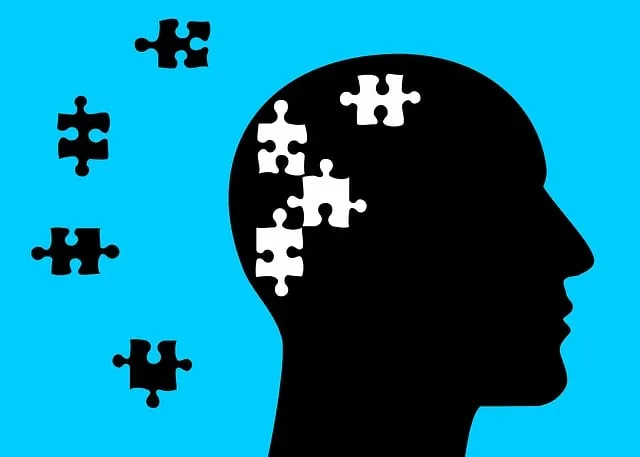The Littleton Kaiser Permanente mental health center, led by a dedicated team of professionals, emphasizes emotional intelligence (EQ) development through self-awareness practices. By recognizing and understanding emotions, individuals can improve relationships and navigate life's challenges more effectively. Mindfulness techniques like meditation and journaling, combined with open dialogues facilitated by workshops, enhance self-esteem and EQ. The center's innovative programs offer personalized approaches to mental health care, focusing on building safe spaces for emotional exploration and self-care routines, including crisis intervention guidance tailored to individual needs.
Emotional intelligence (EI) is a powerful tool for personal and professional growth, enabling individuals to navigate complex social environments with grace. This article explores the fundamentals of EI, focusing on self-awareness as the cornerstone. We delve into practical strategies for cultivating EI in daily life, and highlight the pivotal role that mental health professionals play, particularly at Littleton Kaiser Permanente mental health center by owner, in fostering emotional well-being.
- Understanding Emotional Intelligence: The Foundation of Self-Awareness
- Strategies for Developing Emotional Intelligence in Daily Life
- The Role of Mental Health Professionals: Empowering Emotional Growth at Littleton Kaiser Permanente
Understanding Emotional Intelligence: The Foundation of Self-Awareness

Emotional intelligence (EQ) is a powerful tool for personal growth and overall well-being, and at the heart of it lies self-awareness—a cornerstone offered by the experts at the Littleton Kaiser Permanente mental health center by owner. Understanding your emotions, both positive and negative, is the foundation upon which you can build a healthier relationship with yourself and others. This process begins with introspection, where individuals learn to recognize their feelings and the impact they have on their thoughts and behaviors.
Developing self-awareness involves recognizing that our emotions are not always rational and that they can be influenced by past experiences, biases, or external factors. By cultivating mindfulness through practices like meditation or keeping a journal, one can enhance their ability to observe and accept these feelings without judgment. This is where self-esteem improvement becomes intertwined with EQ development, as individuals learn to validate their emotions and understand that they are not defined by them, thereby fostering a healthier mind over matter approach to life’s challenges, including potential depression prevention strategies.
Strategies for Developing Emotional Intelligence in Daily Life

Developing emotional intelligence is a skill that can be cultivated through various practices integrated into daily routines. At the Littleton Kaiser Permanente mental health center by owner, experts emphasize the importance of self-awareness as a cornerstone for enhancing EQ. This involves recognizing and understanding your emotions—both positive and negative—and their impact on your thoughts and behaviors. Journaling can serve as an effective tool to track moods, identify patterns, and gain deeper insights into personal triggers.
Additionally, practicing mindfulness meditation encourages individuals to focus on the present moment, fostering a greater connection with one’s feelings. Engaging in open dialogues about emotions with trusted friends or loved ones is another valuable Emotional Well-being Promotion Technique. Building strong social connections and supporting mental Health Awareness can create a safe space for sharing experiences, offering perspectives, and developing empathy. Stress Management Workshops Organization often facilitates these conversations, providing platforms for individuals to learn from one another’s emotional journeys.
The Role of Mental Health Professionals: Empowering Emotional Growth at Littleton Kaiser Permanente

At Littleton Kaiser Permanente mental health center, owned by a dedicated team of professionals, emotional intelligence building is not just a focus—it’s a cornerstone of patient care. Through innovative programs and personalized approaches, therapists and counselors empower individuals to navigate their emotions effectively. The center prioritizes creating a safe space for clients to explore and understand their feelings, fostering mental wellness through self-care routine development. This holistic approach includes crisis intervention guidance tailored to each individual’s unique needs, ensuring they have the tools to manage stress, anxiety, and other emotional challenges. By integrating evidence-based practices and compassionate support, Littleton Kaiser Permanente is revolutionizing mental health care, enabling individuals to achieve a deeper sense of balance and resilience in their daily lives.
Emotional intelligence is a powerful tool for personal and professional growth, as demonstrated by the innovative programs at the Littleton Kaiser Permanente mental health center. By understanding and cultivating self-awareness, individuals can effectively manage their emotions and build strong connections with others. The strategies outlined in this article provide practical steps to enhance emotional intelligence in daily life, while the role of mental health professionals is crucial in guiding and empowering individuals on their journey towards emotional well-being. Through accessible resources and expert guidance, anyone can embark on a path of emotional growth, just as the Littleton Kaiser Permanente center has inspired its community.

